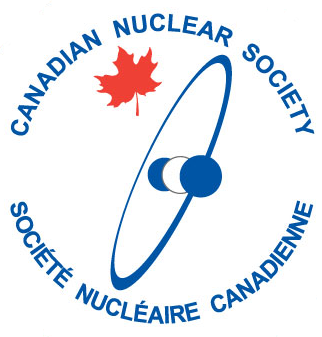
- This event has passed.
Erwin Alhassan – Total Monte Carlo and Bayesian Updating in Nuclear Data Uncertainty Propagation
March 28, 2017 @ 12:00 am
Speaker: Dr. Erwin Alhassan, Postdoctoral Fellow, McMaster University
Date/Time: March. 28st, 1:00 pm – 2:20 pm.
Location: ETB-533 (Engineering Technology Building), McMaster University.
Summary
Nuclear reactors are complex multi-physics systems which require the coupling of several fields of Physics in order to describe and analyze them. In order to save time and cost, simulations using computer codes such as MCNP6 or SERPENT are used to study safety scenarios of these systems at both steady state and transient conditions. These simulation codes use nuclear data which contain associated uncertainties as input and therefore the output of these codes are affected by the uncertainties in nuclear data used. Knowledge and the ability to quantify these uncertainties are important for setting safety margins as well as for providing confidence in the interpretation of results. Also, in recent times, nuclear regulatory authorities are moving away from conservative evaluations to best estimate calculations which are accompanied by uncertainty evaluations.
In the past because of computational resource constraint, the propagation of uncertainties straight from nuclear model parameters to applications was difficult. However, this is now possible due to the increase in computational power as well as improvements in nuclear reaction models. In this presentation, the Total Monte Carlo approach and Bayesian updating for data adjustments and for nuclear data uncertainty reduction would be presented. Parameters in basic nuclear physics are sampled from uniform distributions in order to obtain non-informative priors as much as possible. These parameters are then randomly varied all together and a large set of random nuclear data libraries are produced. Next, a probabilistic data assimilation is carried out by computing the maximum likelihood using differential experimental data. The ‘best file’ – the file with the largest likelihood function is used (in some cases) as the prior for resampling of basic nuclear parameters. Once satisfied, the new ‘best file’ is used for creating a large set of random nuclear data libraries for the propagation step. Further, by using the random nuclear data produced in the previous step as prior, integral experimental data are used as an additional constraint in order to obtain a posteriori uncertainty on reactor integral quantities.
Biography
Erwin Alhassan obtained his BSc (Applied Physics with Environmental Science) and MPhil (Nuclear Engineering) from the University for Development Studies and the University of Ghana, both in Ghana respectively. During his time in Ghana, he has been involved in steady state, burnup, stability and transient analysis as well as Neutron Activation Analysis for the Ghana Research Reactor-1. He went on to obtain a Licentiate of Philosophy and a PhD (Physics with specialization in Applied Nuclear Physics) from Uppsala University in Sweden where he worked on nuclear data uncertainty quantification and data assimilation for GEN-IV reactors. He was a co-Manager and technical reviewer for the technical track 3.2 (Reactor Physics and Neutronics) for the International Youth in Nuclear Congress 2014, Burgos, Spain. He is currently a postdoctoral fellow at the Engineering Physics Department, McMaster University, Canada. He has authored/co-authored over 20 peer-reviewed journal articles and has presented papers at several international conferences and meetings.
Coffee and Tea will be provided at the seminar, courtesy of the CNS.
Please contact sharpejr@mcmaster.ca if you have any questions.
